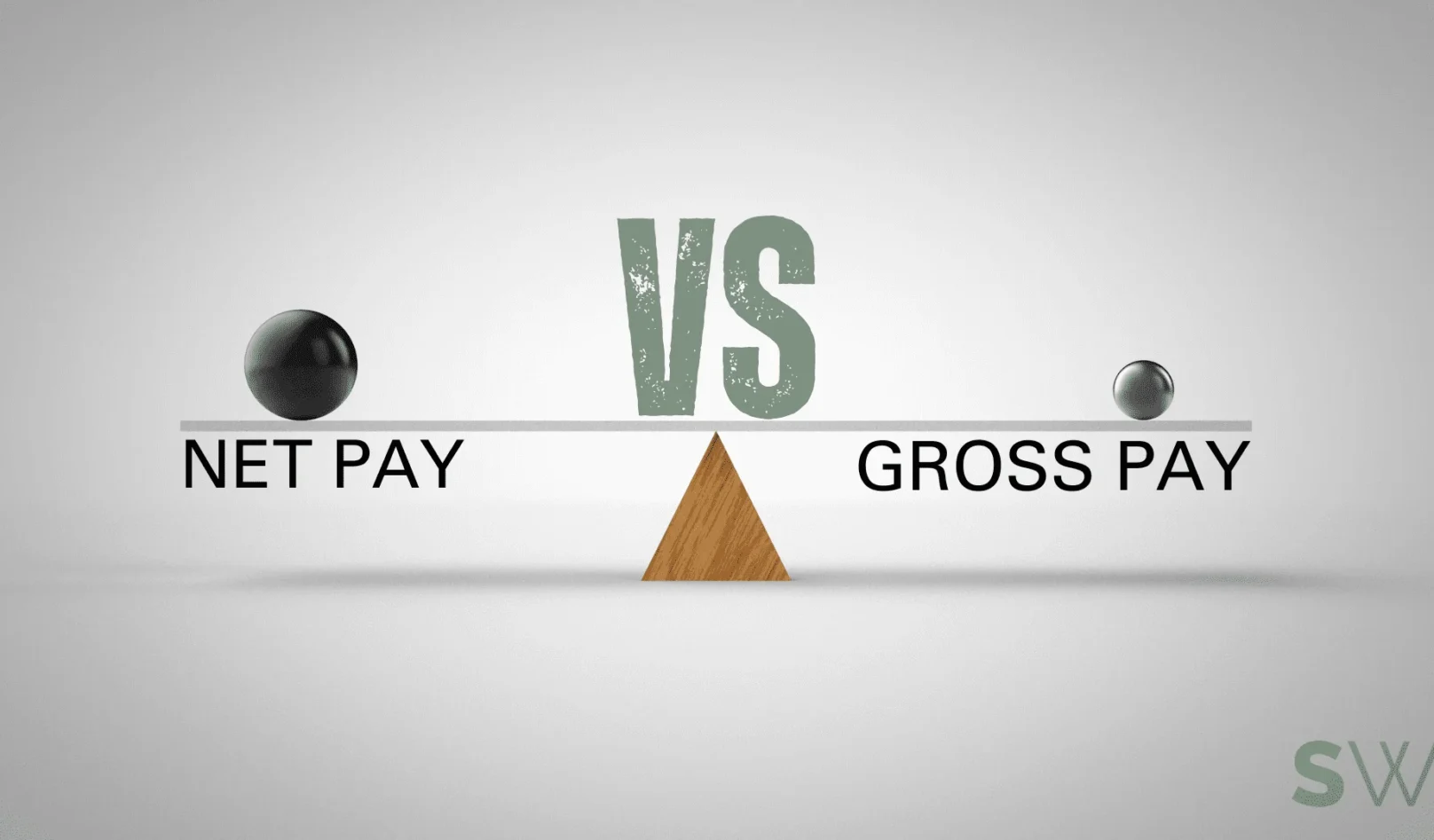
Navigating paychecks, taxes, and deductions can be confusing. By understanding the difference between gross and net pay, you can better plan your budget and ensure accurate compensation. This guide breaks down the key distinctions.
The Basics of Payroll Terminology
What is Gross Pay?
Gross pay is your total compensation before any taxes or deductions. It includes your base salary/wages along with other earnings like overtime, bonuses, and commissions.
What is Net Pay?
Net pay is your take-home pay after deductions and withholdings. It’s the actual amount that gets deposited into your bank account or paid to you.
Breaking Down Gross Pay

Components of Gross Pay
In addition to your normal wages, gross pay may include:
- Overtime
- Bonuses
- Commissions
- Stock options
- Employer retirement contributions
Calculating Gross Pay
Add up all taxable compensation including base salary, hourly wages, OT, and other monetary earnings to determine gross pay. For example, $5,000 monthly salary + $2,000 bonus = $7,000 gross pay.
Understanding Net Pay
Deductions from Gross Pay to Net Pay
Common deductions include:
- Federal/state income taxes
- Social Security and Medicare taxes
- Health insurance premiums
- Retirement contributions (401k etc.)
- Flex spending accounts
- Union dues
Calculating Net Pay
Subtract all deductions from gross pay to arrive at net pay. For example, $7,000 gross pay – $1,500 deductions = $5,500 net pay.
Tax Considerations
Federal and State Taxes
Income, Social Security and Medicare taxes withheld reduce gross pay. More exemptions mean less tax and higher net.
Tax Exemptions and Allowances
Claiming exemptions and allowances on Form W-4 minimizes income tax withholding, increasing net pay. However, this may result in owing taxes at filing time.
Special Circumstances Affecting Pay

Bonuses and Their Impact
Bonuses are taxed at a flat supplemental rate rather than your normal rate, resulting in significant withholding. Bonuses add to gross pay but have a muted impact on net.
Freelance and Contract Work
For freelance work, taxes aren’t withheld upfront. At tax time, you must pay self-employment taxes reducing net income. Quarterly estimated payments help avoid penalties.
Payroll Errors and Corrections
Check your paystub routinely for accuracy. Report errors immediately and keep records. File an IRS Form W-2c for W-2 errors. Get wrongly withheld taxes back by amending returns.
Practical Implications for Employees
Budgeting with Net Pay
Focus budgets on net income, which reflects true take-home amount. Avoid overspending based on gross pay.
Negotiating Salaries
Compare job offers based on annual gross pay. But negotiate based on desired net pay after performing tax calculations to ensure adequate monthly take-home.
Conclusion
The interplay between gross and net pay can get confusing. But understanding key differences optimizes budgeting and ensures you get paid accurately. Check your paystub routinely and report errors promptly for maximum compensation.
FAQS
How does 401k contribution affect gross vs net pay?
401k contributions lower your taxable income, reducing how much tax is withheld from each paycheck. This decreases gross pay but increases net take-home pay compared to not contributing. Overall less tax is owed.
What’s the difference between gross annual salary and net annual income?
Gross salary is your total compensation before any taxes or deductions. Net income is your actual annual take-home pay after accounting for tax withholding and other payroll deductions that reduce your gross amount.
Can you explain how tax brackets impact net vs gross income?
Higher tax brackets result in more taxes withheld for a given gross salary, lowering net income. Understanding your tax bracket based on filing status ensures accurate net pay expectations when evaluating job offers.
How does getting married affect net pay through tax changes?
Many couples experience a “marriage penalty” resulting in higher combined tax withholding after marriage, despite the same gross income. This reduces net take-home pay. Adjusting Form W-4 withholdings as a married couple can offset potential marriage tax penalties.
What are some common mistakes calculating gross vs net pay?
Underestimating tax withholding amounts, ignoring impacts of bonuses/commissions, miscalculating retirement plan reductions, and not accounting for health insurance premium deductions are common errors in gross vs net calculations. Double check your paystub.
More Information
Federal Pay Raise 2024 | When Will The 2024 Raise Take Effect?
Getting Paid Today: The Rise Of Same Day Pay Opportunities
